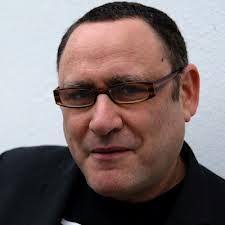
On May, 6, 2011, embattled Jazz musician and philosopher Gilad Atzmon gave a talk at Columbia College Chicago about his intellectual and musical journey of liberation from identity supremacy and the shame of living in an oppressor state. In tones intense and dissonant he provided definitions for Zionism, Judaism, Jewish supremacy, Israel and Palestine while contextualizing with both the saxophone and reflections on being raised in a culture where one group’s hunger for superiority, power and properties concludes with the oppression of the indigenous “other”. Gilad gave witness to the horrific methods the Israeli states goes to attain their supremacy.
While his story takes place in the land of Palestine with a state called Israel similar stories are simultaneously being played out in Iraq, Afghanistan, with Libya and Pakistan next on the list, by what is called the United States and the United Kingdom and other European competitors. The groups doing the aggressive killings and plundering believe that by eradicating some and controlling all of the indigenous groups they will gain both power and domination of the lands and resources. The Israelis, Americans and British stop at nothing and do everything to gain and maintain their supremacy. The committing of such heinous crimes against other human beings requires the blocking of the heart of the human connection between the two groups. By disconnecting one’s self from the reality of the crime, the imposing group is able to carry out their atrocities while naming any indigenous resistance that does not benefit them, terrorism.
Gilad also described the very personal attacks by Jewish groups and individuals whose intentions are to essentially silence him from giving his testimony. The most common cause of the well-organized gatekeeping stems from the strategy that in order to achieve dominance, they need to put fear into those who dare to act as witness. The gatekeeper and lobbyist believe that if they are feared, then they have power and control of a situation to spin it in their favor. This dominance is necessary for the attacker to get what they want out of a situation while at the same time standing at the mirror on the wall telling the world they are the most victimized of them all.
Gilad’s voice is an important one to hear. He is the courageous everyman on a classic heroes’ journey who dares to tell the truth about an oppressor who admittedly is his grandfather, cousin, and brother. What is truly brave is that he does not tell the truth as the victim but as a product of the oppressor’s deliberately constructed Zionist agenda and Jewish culture. The story of his shame is our collective shame and resonated in the faces of the American audience and could be heard by the discerning ear in the silences in between their questions. We too are ashamed of our American assassinations, illegal wars, tortures, and the hypocrisy of our so called democracy. As we listen to Gilad we wonder about our own identity as Americans. We cannot even claim a healing bowl chicken soup like Gilad as we have only genetically modified burgers for our cultural icon.
The philosopher’s questions here are critical. With what will we choose to identify? American myths? Cultural imperialism? Ideological dogmatism? Ethnocentrisms? As we listen to Gilad Atzmon we are compelled to accept his call to us to be ethical human beings and take the heroes’ journey away from identities of supremacy into the core of our common humanity for the sake of the nothing less than the entire world.
The message is: I am the other.
View Original Post

Gilad Atzmon is an Israeli-born British jazz saxophonist, novelist, political activist and writer.
Atzmon’s album Exile was BBC jazz album of the year in 2003. Playing over 100 dates a year,[4] he has been called “surely the hardest-gigging man in British jazz.” His albums, of which he has recorded nine to date, often explore the music of the Middle East and political themes. He has described himself as a “devoted political artist.” He supports the Palestinian right of return and the one-state solution in the Israeli-Palestinian conflict.
His criticisms of Zionism, Jewish identity, and Judaism, as well as his controversial views on The Holocaust and Jewish history have led to allegations of antisemitism from both Zionists and anti-Zionists. A profile in The Guardian in 2009 which described Atzmon as “one of London’s finest saxophonists” stated: “It is Atzmon’s blunt anti-Zionism rather than his music that has given him an international profile, particularly in the Arab world, where his essays are widely read.”
His new book The Wandering Who? is now availble at Amazon.com
ATTENTION READERS
We See The World From All Sides and Want YOU To Be Fully InformedIn fact, intentional disinformation is a disgraceful scourge in media today. So to assuage any possible errant incorrect information posted herein, we strongly encourage you to seek corroboration from other non-VT sources before forming an educated opinion.
About VT - Policies & Disclosures - Comment Policy




